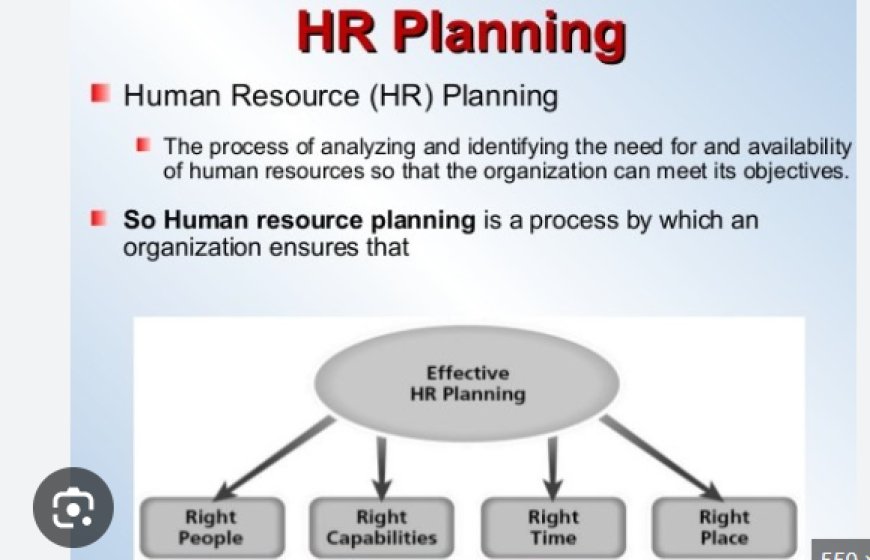Career in HR: Is It the Right Choice for You?
A career in Human Resources (HR) can be incredibly rewarding but requires a unique combination of people skills, strategic thinking, and adaptability.

A career in Human Resources (HR) can be incredibly rewarding but requires a unique combination of people skills, strategic thinking, and adaptability. HR professionals play a crucial role in managing talent, fostering positive work environments, and driving business success through people-centered strategies. If you're considering a career in HR, this guide will help you evaluate if it aligns with your interests, skills, and long-term goals.
Read Details - HR Classes in Pune
1. What Does a Career in HR Involve?
HR professionals are responsible for recruiting, developing, and retaining talent. Depending on the role, you could be handling everything from hiring and employee engagement to performance management, learning and development, and compliance.
Core HR Functions
- Recruitment and Staffing: Finding the right talent for the organization.
- Employee Relations: Ensuring a positive relationship between employees and management.
- Compensation and Benefits: Managing payroll, bonuses, and perks.
- Learning & Development: Organizing training and professional growth programs.
- Compliance: Ensuring the organization complies with labor laws and regulations.
- Change Management: Supporting employees through organizational changes.
2. Do You Have the Right Skills for HR?
Working in HR requires a mix of soft skills and technical knowledge. Below are some essential skills to thrive in HR:
Soft Skills
- Communication: The ability to communicate policies and handle employee issues effectively.
- Empathy: Understanding employee concerns and promoting well-being.
- Problem-Solving: Managing conflicts and resolving employee grievances.
- Negotiation: Managing discussions around salaries, benefits, and employee concerns.
- Organizational Skills: Keeping processes streamlined, especially in recruitment and compliance.
Technical Skills
- Knowledge of Labor Laws: Familiarity with local and global labor laws and regulations.
- HR Technology Tools: Proficiency with HRMS, ATS, and performance management systems.
- HR Analytics: Ability to analyze workforce data to make informed decisions.
- Business Acumen: Understanding how HR aligns with business strategy and goals.
3. Does HR Align with Your Personality and Interests?
A career in HR can be ideal if you:
- Enjoy working with people: You’ll spend much of your time interacting with employees, managers, and job candidates.
- Like problem-solving: HR involves resolving conflicts and finding solutions to employee or organizational challenges.
- Thrive in a dynamic environment: HR professionals often need to manage multiple tasks, from hiring to handling employee concerns.
- Value personal growth and continuous learning: HR constantly evolves with new trends, laws, and best practices, so you’ll need to stay updated.
- Are comfortable with confidential information: HR handles sensitive data and employee records, requiring discretion and professionalism.
Read Details - HR Course in Pune
4. What Are the Different Career Paths in HR?
HR offers diverse roles based on your interests. Some career paths include:
- HR Generalist: Broad exposure to various HR functions.
- HR Specialist: Focuses on one area, such as recruitment, compensation, or training.
- HR Business Partner (HRBP): Works closely with management to align HR with business strategy.
- Talent Acquisition Specialist: Focuses on recruiting and hiring.
- Learning & Development Manager: Designs and delivers employee training programs.
- Compensation & Benefits Manager: Manages employee salaries, bonuses, and benefits.
- Employee Relations Manager: Handles conflict resolution and employee engagement.
- CHRO (Chief Human Resources Officer): Leads the HR function at the executive level.
5. What Are the Pros and Cons of a Career in HR?
Here’s a look at the potential benefits and challenges of working in HR.
Pros
- High demand across industries: Every organization needs HR professionals.
- Diverse roles: Opportunity to specialize in various areas or work across multiple functions.
- Impactful work: You play a direct role in shaping the organization’s culture and helping employees thrive.
- Career growth: With experience, you can move into leadership roles like HR Director or CHRO.
- Opportunities for continuous learning: HR is a dynamic field with new trends and challenges emerging frequently.
Cons
- High-pressure environment: Managing conflicts, employee grievances, or layoffs can be stressful.
- Balancing business and employee needs: You’ll need to balance employee well-being with business goals.
- Repetitive tasks: Certain roles (like payroll or recruitment) can involve routine work.
- Dealing with difficult situations: Handling terminations or performance issues can be emotionally taxing.
- Need for continuous learning: You’ll need to stay updated on employment laws and HR trends.
Read Details - HR Training in Pune

 shruti80
shruti80